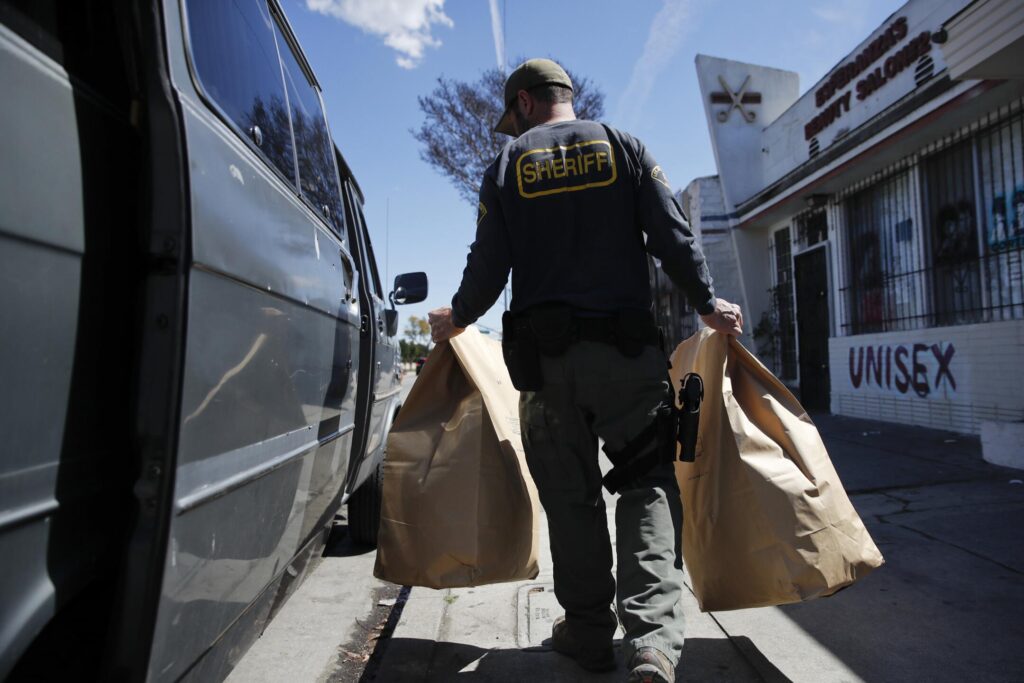In a move that has sent shockwaves through the U.S. cannabis industry, federal agents staged a dramatic raid on Glass House Farms California’s largest legal marijuana grower arresting over 360 individuals and igniting fierce debate over political motives, immigration enforcement, and the future of legal cannabis in America.
The coordinated operation, executed by U.S. Immigration and Customs Enforcement (ICE) and Border Patrol agents on July 10, targeted two massive farm sites operated by Glass House in Carpinteria and Camarillo, northwest of Los Angeles. The federal government has yet to clarify the raid’s precise objective, and the company itself has not been charged.
However, the sheer scale of the raid, the high-profile nature of the target, and the secrecy surrounding the sealed court warrants have fueled widespread speculation.
Tragedy and Tension on the Ground
Eyewitnesses described a militarized operation involving armored vehicles, masked agents, and helicopters. At the Camarillo site, panic among workers led to tragedy when a man reportedly fell from a greenhouse roof while trying to escape, later dying from his injuries.
Outside the farm, tensions escalated as demonstrators clashed with agents, who fired tear gas to disperse the crowd. One protester reportedly fired a weapon and remains wanted by the FBI. Among the arrested were four U.S. citizens, including a U.S. Army veteran and security guard who was held for three days.
The operation comes amidst an extended immigration crackdown across Southern California, raising alarm among legal cannabis operators and immigrant communities. Many fear the raids signal a return to aggressive federal interference in states that have legalized marijuana.
A Political Power Play?
With no cannabis seized and charges yet to be filed, some observers see political undertones. Glass House’s founders — Kyle Kazan, a former police officer, and Graham Farrar, a tech entrepreneur — have publicly championed cannabis legalization and have drawn attention for their rapid industry ascent.
“This feels less like law enforcement and more like political theater,” said Adam Spiker, a political consultant advising cannabis firms. “There are thousands of illegal farms, but they went after the biggest legal one? That sends a message.”
The timing of the raid also coincides with ongoing tensions between the federal government and the Democratic-led state of California, sparking rumors that the action may have been aimed at destabilizing the state’s flagship cannabis operation as part of a larger political clash.
Immigration and Labor Questions
While federal authorities cited concerns about possible child labor and human trafficking, few details have been released. Agents reportedly discovered 14 minors on the property, though under U.S. law, children as young as 12 may legally work in agriculture under certain conditions. Cannabis, however, is federally prohibited for workers under 21.
Glass House stated on X (formerly Twitter) that it “has never knowingly violated applicable hiring practices and does not and has never employed minors.” The company said it fully complied with immigration warrants.
Still, the raid prompted United Farm Workers, the nation’s largest farmworker union, to issue a stark warning: “We know this is unfair, but we encourage you to protect yourself and your family. If you are not a U.S. citizen, avoid cannabis industry jobs.”
The Rise of a Cannabis Giant
Glass House’s meteoric rise has earned it admiration and envy. The company’s Camarillo facility alone cost $93 million and spans six greenhouses, two of which are now dedicated to cannabis. In Q1 2025, the company reported $45 million in revenue a 49% increase year-on-year even as many smaller legal operators folded under high taxes and competition from the underground market.
Despite its dominance, the firm has attracted controversy. A rival company previously filed a lawsuit accusing Glass House of being a major illegal cannabis trafficker. Though the suit was dismissed, it may have drawn federal attention.
Kazan remains bullish on the industry’s future. “It’s not if, but when cannabis becomes America’s next normalized massive industry,” he recently told investors. “We are built to survive, with or without federal legalization.”
What Comes Next?
As the legal cannabis industry reels from the implications of the raid, questions remain: Was Glass House targeted for violating labor laws, or was the raid a symbolic crackdown? Why were no charges filed, and why is the search warrant still under seal?
For now, the industry is bracing for more scrutiny and immigrant workers are growing increasingly fearful of employment in cannabis farms, legal or not.
The final word from critics? “If this was meant to scare the industry,” said one analyst, “it worked.”


